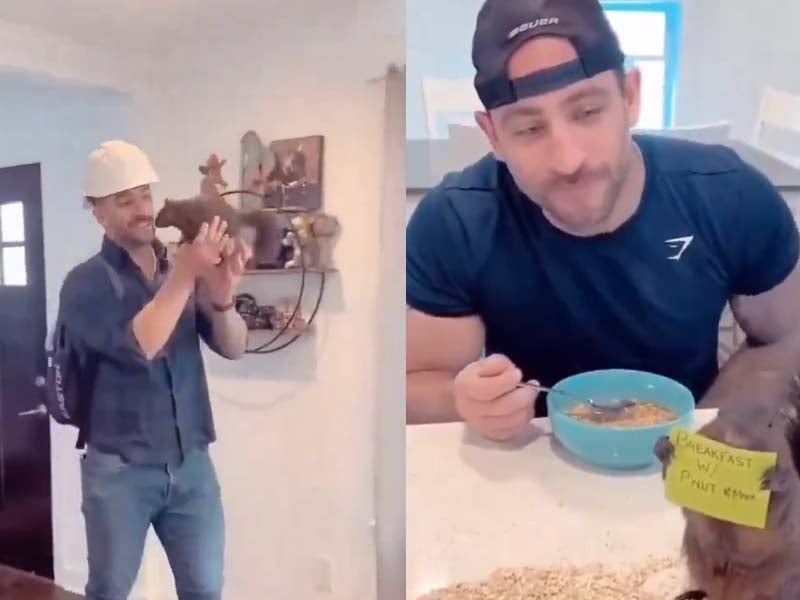
PINE CITY, N.Y. — A beloved pet squirrel named Peanut, who became a social media sensation in New York, has reportedly been seized and euthanized by the New York State Department of Environmental Conservation (DEC), igniting anger and sorrow among fans and wildlife advocates. Peanut, a gray squirrel who lived with owner Mark Longo in Pine City, attracted a large following online, where his playful antics and heartwarming backstory captured the attention of thousands.
DEC officials, responding to complaints of “unlawfully possessed” wildlife, reportedly served a warrant at Longo’s home outside Elmira last Wednesday morning. Along with Peanut, officials also seized a pet raccoon. Longo said he had raised Peanut from infancy after the squirrel’s mother was hit by a car, and had used Peanut’s viral popularity to raise funds for animal sanctuaries.
In a statement posted on Peanut’s Instagram account, Longo accused DEC officers of entering his home without legal grounds and taking Peanut without considering alternative options. Just 48 hours after the seizure, Longo says he learned that Peanut had been euthanized. “This innocent creature was taken from me after I raised it with love, only to be killed,” he wrote, expressing deep frustration and sadness.
Peanut’s story highlights the increasing popularity of pets and wildlife on social media, where animals like Peanut have gained massive followings. For many followers, these pets are more than just online personalities—they are symbols of resilience and joy.
The DEC has not released a public statement regarding the seizure or euthanization of Peanut, but under New York state law, keeping wild animals as pets is generally prohibited without a permit. However, Longo and Peanut’s supporters argue that the law should make allowances for animals that cannot safely return to the wild and that exceptions could be made for individuals who have taken on the responsibility of their care.
The incident has sparked an outpouring of support for Longo, with many fans expressing disappointment over the handling of the situation. Advocates for wildlife rehabilitation are calling for a review of the regulations surrounding domesticated wild animals, particularly those with strong ties to their caretakers.







